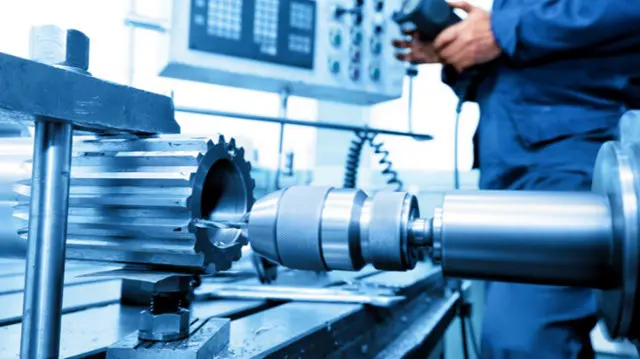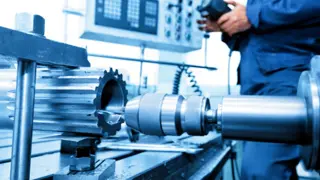
Introduction to CNC Programming
Learn about programming format,G Code,M Code,Absolute & Incremental mode,Interpolation & many more
J. Aatish Roa
Summary
- Reed Courses Certificate of Completion - Free
- Tutor is available to students
Add to basket or enquire
Overview
One of the most exciting aspects of pursuing a career in the CNC industry is the job outlook. Currently, there is a skills gap, which has led to a high demand for machinists and programmers. “So much is made with CNC machines, and there are so many industries you can get into”.
Curriculum
Course media
Description
The manufacturing industry relies heavily on computer-numerical control (CNC) machining, including operations that once used engineer-operated equipment like routers, shaping machines, vertical millers and centre lathes. The many CNC machine advantages mean operator-required equipment has in some cases been replaced entirely. Manufacturers of many types across many industries choose the advantages of CNC machining for their fabrication and manufacturing applications. It provides efficient, expedient and precise production capacity ideal for creating large quantities of items.
This course is intended for learners from a vast range - Mechanical engineering, Manufacturing engineering, Industrial engineering, Machinists, Hobbyists & the list goes on. Even working professionals who wants to brush up there knowledge will get benefited.
The course will start with a basic introduction about Numerical control, its history & how it had been introduced in the modern industry. Then we will discuss about various types of popular CNC machines in the industry. And finally we will learn about the basics of CNC programming which will include programming format explaining different types of codes as such G code, M code, S,D,F and many more. Then we will get to know the most simplest & precise way of writing a CNC program with complete coding. Then we will discuss about two popular approach in CNC programming that is absolute & incremental mode. And finally we will write a complete program involving everything we have learned & even more.
Who is this course for?
- Mechanical engineering graduates & undergraduates
- Manufacturing & Industrial engineering graduates & undergraduates
- Graduate or diploma engineer trainees, Machinist's apprentice's, CNC Hobbyists
- CNC operators who wants to learn basic G-Codes
- Working professionals who wants to brush up there knowledge
Requirements
- Just some mathematics involved.
- The most important trait - A kin & curious mind !!
Career path
-
What Job roles you can apply after completing the course
- CNC Machinist
- DET & GET
Questions and answers
Hello, how much G Code is taught on this course? and is there a next level course to learn G Code?
Answer:Hi mark. Basic level G-Code is included. I am planning to launch an intermediate-level course shortly.
This was helpful.Is this course for beginners?
Answer:Hi Richard Yes ! This course is designed to provide preliminary knowledge of CNC programming
This was helpful.
Certificates
Reed Courses Certificate of Completion
Digital certificate - Included
Will be downloadable when all lectures have been completed.
Reviews
Currently there are no reviews for this course. Be the first to leave a review.
Legal information
This course is advertised on reed.co.uk by the Course Provider, whose terms and conditions apply. Purchases are made directly from the Course Provider, and as such, content and materials are supplied by the Course Provider directly. Reed is acting as agent and not reseller in relation to this course. Reed's only responsibility is to facilitate your payment for the course. It is your responsibility to review and agree to the Course Provider's terms and conditions and satisfy yourself as to the suitability of the course you intend to purchase. Reed will not have any responsibility for the content of the course and/or associated materials.


